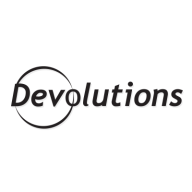


Devolutions Remote Desktop Manager and Check Point Remote Access VPN are competing products in remote access solutions. Devolutions edges ahead with pricing and support, while Check Point excels in security features, providing its value through enhanced security offerings.
Features: Devolutions provides centralized management for multiple remote connections, simplifying access with a unified platform. It offers protocol compatibility and strong security controls. Check Point focuses on robust security, offering advanced threat prevention and network-level security with built-in compliance checks, multi-factor authentication, and seamless access for remote users.
Room for Improvement: Devolutions could enhance its security features to match those provided by Check Point. Further improvement in scaling capabilities and integration with third-party applications could also be beneficial. Check Point could simplify its deployment process and improve its interface for ease of use. Cost-effectiveness and reducing resource consumption during deployment could be improved.
Ease of Deployment and Customer Service: Devolutions offers straightforward deployment and robust customer support, ensuring integration within existing systems. Check Point's deployment is more complex due to its intricate security layers, yet benefits from responsive customer service that addresses configuration issues effectively.
Pricing and ROI: Devolutions presents a cost-effective pricing model with potential ROI from reduced management costs. Check Point requires a higher upfront investment but offers extensive ROI through its resilient security infrastructure. The pricing difference highlights Devolutions' budget-friendly strategy versus Check Point's focus on high-level security and protection.



Microsoft Intune provides centralized management of mobile devices and applications, ensuring security, compliance, and productivity through integration with Microsoft services like Microsoft 365 and Azure Active Directory.
Organizations use Intune for managing mobile devices and applications, enhancing security and compliance across platforms. With features like single sign-on, conditional access, and zero-touch deployment via Autopilot, it facilitates efficient operations. Intune's scalability, easy enrollment, and capabilities such as remote wipe support diverse device management, offering robust data protection and efficient operation. Despite its features, improvement areas include reporting, compatibility with non-Microsoft devices, and better support for macOS and Linux devices.
What are the key features of Microsoft Intune?
What benefits should users look for in reviews?
In industries such as finance, healthcare, and education, Microsoft Intune is implemented to ensure secure and compliant device management. Companies leverage its capabilities to deploy security policies and manage both corporate-owned and BYOD environments, facilitating a unified approach to data protection and compliance.
Remote secure access VPN is a solution that provides users with remote access to an organization’s network. The host may have VPN client software loaded or use a web-based client. The solution leverages security features like multi-factor authentication, endpoint scanning, and encryption of all data in motion.
Check Point Remote Access VPN provides individuals with protected and efficient access to a company network from anywhere. This strategy fosters collaboration and connectivity between distributed teams and offices.
Features of Check Point Remote Access VPN
Key features of the secure remote access VPN include:
The system enforces endpoint security with endpoint compliance. It monitors and verifies the security status of each endpoint and reports back to the Security Gateway. The gateway, in turn, checks the compliance level and directs the connectivity to the right resources.
Users can deploy the Remote Access VPN in one of three ways:
Remote Access VPN is centrally managed. The centralized console enables management and enforcement of policies with a single log-in.
The Remote Access VPN has a web portal that users can use to connect securely to corporate applications, such as web-based resources, file-sharing, and email. Administrators can customize the web portal to match the brand identity.
Remote Access VPN offers two choices for remote access:
The authentication features include password management, RADIUS challenge/response, CAPI software, and hardware tokens. P12 certificates, and SecurID.
The system establishes a VPN tunnel on demand. It also re-arranges connections when roaming. The tunnel can automatically tear down when the user is on the corporate LAN.
There are several connection features, such as Hotspot detection, office mode IP, split tunneling, and automatic fallback to HTTPS.
Benefits of Check Point Remote Access VPN
One of the key advantages of Remote Access VPN is that it provides remote workers with a secure way to connect to a corporate network from any device, including their personal devices. The data encryption in transit enables them to securely access the resources they need for their tasks.
It also provides IT support and technicians with a faster way to troubleshoot software issues. In the case of a ticket, IT doesn’t need to go to the server location to fix the problem but can troubleshoot it remotely.
A remote secure access VPN is also an affordable alternative for small and medium-sized businesses, without requiring expensive infrastructure.
Reviews from Real Users
A Global IT Network and Security Service Senior Specialist at a manufacturing company who uses Check Point Remote Access VPN says, "I found the MEP feature the most valuable. This has improved users' latency allowing the users to connect to the nearest Azure Check Point VM."
"Organizations that already use the Check Point NGFW Solution do not require any additional hardware, which makes the implementation straightforward and reduces the time to go live," explains Basil D., Senior Manager at a financial services firm.
Manuel B., a Voice and data infrastructure specialist at a tech services company, says that "The IPSec VPN, Mobile Access, and Identity Awareness are three of the blades with which we have been working with since the pandemic. This has given us great mobility, making our network more dynamic."
Remote Desktop Manager (RDM) centralizes all remote connections on a single, secure platform that can be shared across the entire team. With support for hundreds of integrated technologies—including multiple protocols and VPNs—RDM provides a comprehensive solution for managing remote access. It also features enterprise-grade password management tools, detailed access controls, and mobile apps that complement its desktop clients for Windows and Mac, and Linux.
RDM is designed to empower IT departments by enhancing security, speed, and productivity across the organization. By streamlining remote access management, it helps reduce inefficiencies, lower costs, and minimize risks, making it an essential tool for today’s IT environments.
We monitor all Remote Access reviews to prevent fraudulent reviews and keep review quality high. We do not post reviews by company employees or direct competitors. We validate each review for authenticity via cross-reference with LinkedIn, and personal follow-up with the reviewer when necessary.